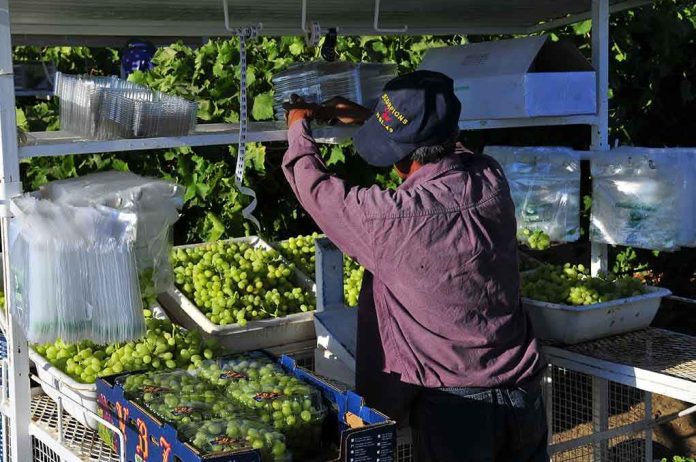
The USDA’s decision to fire foreign workers from adversarial countries has sparked a contentious debate over national security and the future of agricultural research.
At a Glance
- The Trump administration dismissed 6,000 probationary USDA employees, including dozens of ARS researchers.
- The layoffs targeted nationals from unspecified adversarial countries, including China.
- The Merit Systems Protection Board issued a temporary 45-day stay on these terminations.
- Research disruptions threaten U.S. agricultural competitiveness and food security.
A Bold Move for National Security
The Trump administration’s recent decision to fire foreign workers from adversarial countries within the USDA is a move heralded by some as a necessary step to safeguard national security. The layoffs affected around 6,000 probationary employees, including dozens of Agricultural Research Service (ARS) researchers. These dismissals specifically targeted nationals from countries considered threats to U.S. interests. While the exact countries have not been disclosed, China is believed to be among them. This sweeping action is part of a broader effort to reduce the federal workforce.
The USDA, under the new administration, aims to address national security concerns by limiting foreign influence within critical research sectors. However, the dismissals have not just sent shockwaves through the scientific community but have also raised questions about the future of U.S. agricultural research. These terminations hit key research units, including the Forage Seed and Cereal Research Unit in Corvallis, Oregon, and the National Centers for Animal Health in Ames, Iowa. Projects that were crucial for crop genetics, disease resistance, and climate adaptation now face significant setbacks.
Impact on Research and Collaboration
The layoffs have disrupted essential collaborations between ARS and land-grant universities like Oregon State University (OSU), which rely on these partnerships for research and student training. Many of the terminated researchers were early-career scientists dedicated to advancing agricultural innovation. The administration’s decision has led to public outcries from university leaders and industry partners. They emphasize the crucial role of ARS research in maintaining U.S. leadership in agricultural science and innovation. These relationships, foundational to the nation’s agricultural success, now hang in the balance.
University officials, including the dean of OSU’s College of Agricultural Sciences, have expressed alarm over losing what they describe as “the next generation of scientists in agriculture and natural resources.” The blow to mentorship and training opportunities for graduate students is particularly concerning, threatening the pipeline of future agricultural experts. Senators Jeff Merkley and Ron Wyden have publicly called for the reinstatement of all affected ARS staff, demanding transparency on the criteria used for these layoffs.
Senators and Stakeholders Demand Answers
In response to the mounting pressure, the Merit Systems Protection Board issued a 45-day stay on the terminations, allowing some researchers to return temporarily. Despite this temporary reprieve, the long-term future of these researchers remains uncertain. Senators Merkley and Wyden have been vocal in their criticism, highlighting the detrimental impact on American agriculture if these layoffs are made permanent. They argue that the administration’s approach undermines critical research capabilities, risking U.S. competitiveness and food security.
Industry stakeholders and academic leaders are united in their call for the USDA to restore research capacity swiftly. With many projects stalled or delayed, the repercussions extend beyond research labs. Farmers and rural communities, who rely on ARS innovations for improved crop yields and resilience, face delays in accessing new technologies and research-based solutions. The potential economic losses from reduced innovation and delayed projects are significant, threatening not just the agricultural sector but the broader economy reliant on a stable food supply.
Future of U.S. Agricultural Competitiveness
As the dust settles from these controversial layoffs, the risk of a “brain drain” is palpable. Early-career scientists may seek opportunities outside federal service or even outside the U.S., driven by the uncertainty surrounding their positions. This potential exodus of talent could erode the U.S.’s competitive edge in agricultural science, a field crucial for addressing global challenges like climate change and food security.
The broader implications of these terminations are clear. The administration’s decision, framed as a necessary measure for national security, may indeed achieve its immediate goals. However, the price could be a weakened agricultural sector, less resilient to future challenges and less capable of leading the global stage in innovation. As the temporary stay unfolds, the call for transparency and strategic foresight in federal workforce management becomes more pressing than ever.
Sources:
Official letter from Senators Merkley and Wyden





